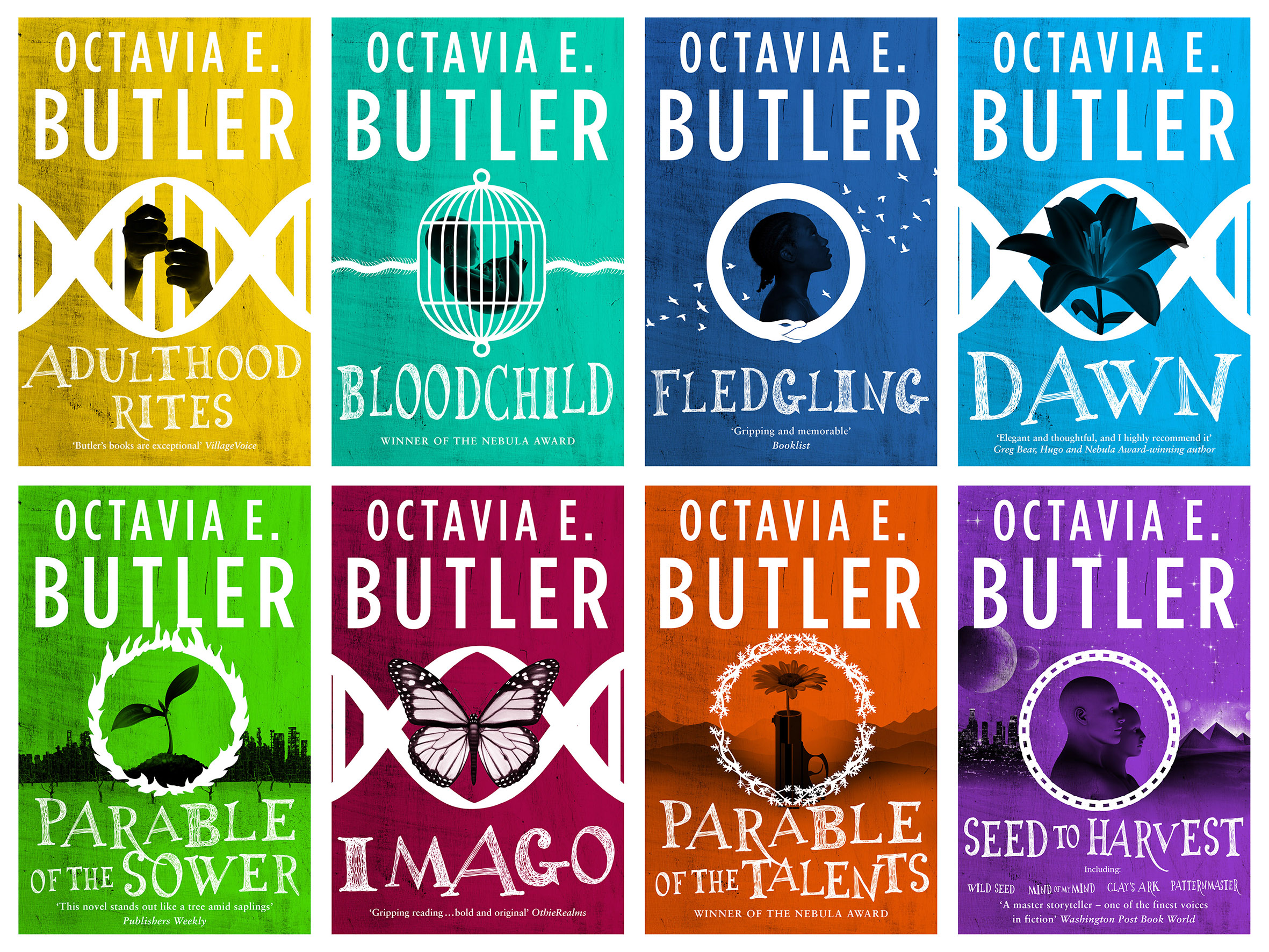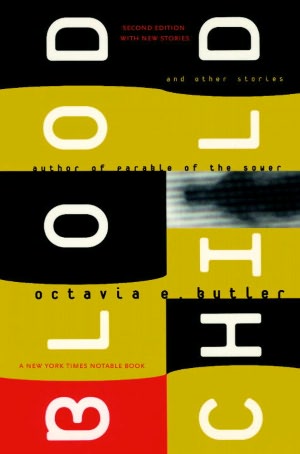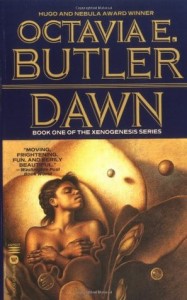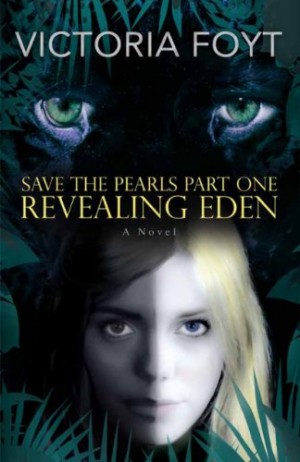This is part of a series of posts on empowerment
__________________
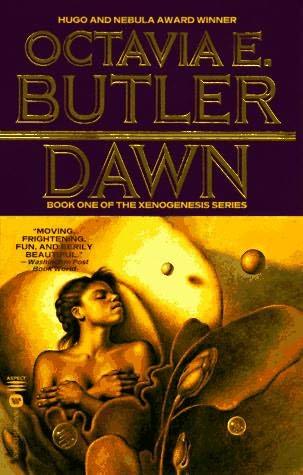 Lilith, the heroine of Octavia Butler’s novel Dawn, is about as thoroughly disempowered as a woman can plausibly be. When we meet her, she has just awoken after a nuclear holocaust to find herself a prisoner on (as we eventually learn) an alien spaceship. Her captives do not even initially provide her with clothes; when she refuses to speak to them, they simply ignore her until she goes insane (they fix her, luckily, so the book can go on). When she does finally meet a tentacled alien, she has a phobic reaction so severe that she can barely stand to be in the same room with it. The alien, though, refuses to leave, demanding that she accommodate herself to it with a blank insistence that smacks of both condescension and sadism.
Lilith, the heroine of Octavia Butler’s novel Dawn, is about as thoroughly disempowered as a woman can plausibly be. When we meet her, she has just awoken after a nuclear holocaust to find herself a prisoner on (as we eventually learn) an alien spaceship. Her captives do not even initially provide her with clothes; when she refuses to speak to them, they simply ignore her until she goes insane (they fix her, luckily, so the book can go on). When she does finally meet a tentacled alien, she has a phobic reaction so severe that she can barely stand to be in the same room with it. The alien, though, refuses to leave, demanding that she accommodate herself to it with a blank insistence that smacks of both condescension and sadism.
Eventually, Lilith learns that the aliens (the Oankali) are capable of advanced genetic manipulation, and have rescued the few remaining earthlings in order to mate with them. Despite her protests, Lilith is trained to prepare other human beings to meet the Oankali. She does, and eventually, as a reward, the Oankali impregnate her without her consent. Nikanj, the creature who impregnated her, tells her that her words said she didn’t want a child, but her heart said something else; in short, it gave her a baby for her own good. Lillith is angry at first, but eventually she accepts that Nikanj was right; she really did want a child, just as it said. Over the course of the three book series, Lilith bears something like a dozen or more alien babies. Thus one of the names of the trilogy, Lilith’s Brood.
And if you thought that tale of being changed into a baby factory against your will was bad, just wait till the second book. In”Adulthood Rites,” the entire plot hinges on the evil of birth control. Furthermore, we learn that the so-called Human Contradiction is most fully embodied in males. Thus, effectively, men are more human than women. Dave Sim couldn’t have summarized misogyny any more clearly than that.
Butler isn’t a misogynist though. She’s a feminist. So what on earth (as it were) does she think she’s doing?
Things may become a little clearer if we go back and define the “human contradiction” that males appear to embody more fully than woman. This “human contradiction” is hierarchy and intelligence. According to Butler-via-the-Oankali, humans are an exceedingly intelligent species, but because they are hierarchical, their intelligence leads them inevitably to murder each other. Thus, the nuclear apocalypse is not an accident; it’s the inevitable effect of humanity’s genetic structure. Men are more human than women in that they are more hierarchical, and therefore more fully in tune with the inevitable human destiny of self-destruction. As Nikanj says to Lilith, “A male who’s Human enough to be born to a Human female could be a danger to us all.” Men, being men, are too human and too deadly.
In this context, Lilith’s disempowerment takes on a different inflection. After all, in this narrative, humans tried empowerment. They built powerful bombs and more powerful bombs, and finally they all killed each other. Clearly, it’s time to try something else.
The thing Lilith tries is adaptation — or, less charitably, submission. The Oankali choose to wake Lilith and work with her specifically because she is so adaptable. Butler never says this in so many words, but the implication is that because Lilith is a woman and an African-American — because she was marginal in terms of her culture on earth — she is more able to accept radical changes to that culture. She was also an anthropologist, accustomed to accepting and processing difference. Even given her background, though, Lilith has a remarkable talent for changing and adapting to those she meets. She is unique, in some sense, not because she stays true to herself, but because, like Bella in Twilight — or, indeed, like any mother — she is willing to be transformed by those she loves.
On the other hand, those who insist on staying true to themselves have a terrible time of it in Butler’s world. The Oankali, as I said, are genetic engineers. They are also the ultimate traders — and what they trade is their being. The Oankali travel from star to star, seeking other living creatures with whom to combine their genetic material. The perfect capitalists, they remain Oankali through constant change, losing their very genetic identity in the pleasurable rush of barter.
The pleasure is literal. The Oankali have three genders; male, female, and ooloi. The third, neuter sex combines genetic material from the other two, and from their trading partners, to produce a new life form. The male and female do not have intercourse; instead, the ooloi plugs directly into their nervous systems, and manipulates their genetic material….as well as their pleasure centers.
Nikanj focused on the intensity of their attraction, their union. It left Lilith no other sensation. It seemed, itself, to vanish. She sensed only Joseph, felt that he was aware only of her.
Now their delight in one another ignited and burned. They moved together, sustaining an impossible intensity, both of them timeless, perfectly matched, ablaze in sensation, lost in one another. They seemed to rush upward. A long time later, they seemed to drift down slowly, gradually, savoring a few more moments wholly together.
Afterwards, Joseph, Lilith and Nikanj’s male lover, interrogates Lilith.
“Why do you let them…touch you?”
“To have changes made. The strength, the fast healing — ”
He stopped in front of her, faced her. “Is that all?” he demanded.
She stared at him, seeing the accusation in his eyes, refusing to defend herself. “I liked it,” she said softly. “Didn’t you?”
As this quote mentions in passing, the Oankali actually did empower Lilith; by manipulating her genes, they gave her great strength, the ability to heal quickly, and very long life. She’s a superhero basically, like Buffy or Wonder Woman. But her main power is something she had originally — the ability to accept and submit, to difference and to pleasure.
It’s a power she has not least because she’s a woman. In her book Powers and Submissions, Christian feminist Sarah Coakley argues that Biblically it was women like Mary Magdalene who first saw the risen Christ, and that they had to convince men that what they had seen was true — a dynamic which Thomas Aquinas linked to women’s greater ability to love. Along those lines, male humans, as Joseph demonstrates, are as a group substantially more freaked out by sex with the Oankali than women are. Men who sleep with the Oankali feel that they’re being feminized. They need to be strong and autonomous — so much so that the ooloi who mate with men provide them with the mental illusion that they are able to move during interspecies sex, because they would be disturbed by the reality that the ooloi immobilize them to give them pleasure.
For Butler, then, the human (and especially male) desire for autonomy, dominance, and power is at best a whimsy to be indulged and at worst a deadly disease to be eradicated. There are echoes here of the philosophy of William Marston, the creator of Wonder Woman.
It seemed to me, from a psychological angle, that the comics’ worst offense was their blood-curdling masculinity. A male hero, at best, lacks the qualities of maternal love and tenderness which are as essential to a normal child as the breath of life. Suppose your child’s ideal becomes a superman who uses his extraordinary powers to help the weak. The most important ingredient in the human happiness recipe still is missing — love. It’s smart to be strong. It’s big to be generous. But it’s sissified, according to exclusively masculine rules, to be tender, loving, affectionate, and alluring. “Aw, that’s girl stuff!” snorts our young comics reader. “Who wants to be a girl? And that’s the point; not even girls want to girls so long as our feminine archetype lacks force, strength, power. Not wanting to be girls they don’t want to be tender, submissive, peaceloving, as good women are. Women’s strong qualities have become despised because of their weak ones. The obvious remedy is to create a feminine character with all the strength of a Superman plus all the allure of a good and beautiful woman.
The Oankali’s solution is a little different, but the diagnosis is similar. Men (and women too) must learn that violence and empowerment are less powerful than love, peace,and tenderness. The Oankali need to teach men (and women) to submit to love and the loss of self. If men (and women) do not learn the strength of selflessness and submission, they will be destroyed.
This is, in fact, precisely the choice that the aliens give human beings. If they are willing to adapt and submit, they can breed with the Oankali, and their children will be born with tentacles and travel through space. If they are not willing to adapt and submit, then they will have no children at all. The Oankali sterilize all those who refuse to take Oankali mates. The humans will live out exceedingly extended, sterile lifespans, and finally die off. At that point, the Oankali’s living ships will consume everything living on the earth as fuel and sustenance for the long space voyage, and the Oankali/human children will leave earth forever.
This seems excessively cruel; a brutal eugenic blackmail. But Butler explains repeatedly that the Oankali are not in fact trying to force humans to breed with them against their will. Rather, the Oankali sterilize humans because they know that if they don’t sterilize humans, humans will kill themselves off. The genetic contradiction, hierarchy and intelligence, is an inevitable death sentence. Allowing humans to breed means creating a messy, extended genocide rather than a quick, relatively painless one. The Oankali’s logic is, undoubtedly deliberately, the logic of abortion — babies who would be unhappy shouldn’t be born.
The Oankali eventually reverse their decision; Akin, Lilith’s first male Oankali/human son, convinces his people to let the humans breed true on Mars. The Oankali still believe that humans will destroy themselves, but Akin insists that they should be allowed to go on; to make their own choice about how they and their children will die if they cannot choose to live. Even if the imperial conquerors bring love, long life, and peace, the conquered should have the right to cling to their benighted folkways…on a reservation, since their home has been stripped for parts.
Butler’s perfectly aware of the bitter irony there, just as Lilith is aware of the bitterness of her own submission. Though she loves her alien family — her ooloi, her male husband, her female Oankali mate, her male Oankali mate, and her ever-increasing brood — she never fully reconciles to having (as she sees it, with some justification) betrayed humankind. Despite her adaptability, her submission still leaves her feeling co-opted, manipulated, and disempowered.
Though that’s not all she’s left feeling, obviously. Butler doesn’t denigrate empowerment; she clearly believes that women (and men too) should be able to make their own choices, even if those choices include embracing traditional family structures as the Mars colonists do. Lilith herself, for all her adaptability, is hardly weak. On the contrary, she’s intelligent, determined, courageous, and resourceful. Given the task of training other humans to return to a wild and primitive earth, she works hard to give her charges the skills they need without letting them revert to savagery. Similarly, she tries to balance the humans’ need for the Oankali in the short term with the ultimate imperative to escape. Lilith isn’t always, or even often, successful, but she’s always thinking, and in the face of an impossible situation she keeps her goals clearly before her, and works towards them to the best of her ability. It’s hard to know what more one could ask of a hero than that.
But though she acknowledges the importance of empowerment, Butler clearly also hopes for something beyond the hierarchical ideals of strength and autonomy and victory. Indeed, for Butler and for Lilith, one could argue that the courage comes out of the adaptability; that the power comes from the submission. Feminist theologian Sarah Coakley (mentioned above) seems to argue for this point as well, when she argues that from passive spiritual contemplation should come not just “Love, joy, peace” but also “personal empowerment, prophetic resistance, courage in the face of oppression, and the destruction of false idolatry.”
This is worked through by Butler perhaps most clearly in the final book in the series, Imago. The central character and narrator of this volume is Jodahs, Lilith’s first ooloi child. Jodahs has superstrength, superhearing, superhealing, and can shapeshift at will — but without love, it literally de-evolves and begins to disintegrate.
This is not, however, a weakness — love isn’t kryptonite. On the contrary, lovelessness causes death not because there’s something wrong with Jodahs, but because that’s how the world works. Without love, as Butler’s nuclear catastrophe suggests, you get a holocaust.
If lack of love is death, Jodahs’ beauty, its specialness, is precisely love and empathy; all its powers and abilities are linked to the fact that it is a creature made to minister to humans. Butler emphasizes repeatedly that Jodahs needs — indeed hungers after — the experience of healing others of their wounds and genetic defects. This healing is accomplished through sex; by giving pleasure. Thus, Jodahs must seduce, love, mate, and heal or else die.
Jodahs’ superpowers, then, are dependent on its being dependent. This is especially so since those powers come not from the aliens, but from humans — and particularly from human weakness. The Oankali wanted to mate with humans because humans get cancer; they were especially interested in Lilith because she had a strong genetic predisposition to the disease. It’s the rapid cell growth of cancer that taught the Oankali to heal and shape-change; it’s Lilith’s genetic weakness that gives her ooloi child its fantastic abilities. In both its life-threatening need for others and in the genetic basis of its abilities, Jodahs can be seen as an answer to the question posed by Coakley:
what…if true divine ’empowerment’ occurs most unimpededly in the context of a special form of human ‘vulnerability?’
Coakley asks this question specifically in the light of the Christ of Philippians 2.5-11,
who, though he was in the form of God, did not count equality with God a thing to be grasped, but emptied himself, taking the form of a servant, being born in the likeness of men. And being found in human form he humbled himself and became obedient unto death, even death on a cross. Therefore God has highly exalted him and bestowed on him the name which is above every other name, that at the name of Jesus every knee shall bow…
In this duality of power and weakness, humility and exaltation, there’s a pretty clear parallel with Butler’s miracle-working human/alien, superhero/dependent, not-man/not-woman, healthy/sick, biracial ooloi. Queerness and kenosis come together in an identity outside identity, a self-effacement through jouissance, the fruits of which are empowerment.
Towards the end of Imago. Jodahs, the narrator, overhears a conversation between its lover, Jesusa, and its mother, Lilith. Jesusa is trying to decide whether to become Jodahs’ life partner. So she asks Lilith how she ever reconciled herself to alien sex.
“I’m afraid. This is all so different… How did you ever…? I mean…with Nikanj…. How did you decide?
My mother said nothing at all.
“You didn’t have a choice, did you?”
“I did, oh, yes. I chose to live.”
“That’s no choice. That’s just going on, letting yourself be carried along by whatever happens.”
“You don’t know what you’re talking about,” my mother said.”
Choice, life, sex, and motherhood — it’s hard to believe that Butler isn’t deliberately glancing at the abortion debate here. I don’t think the message is “pro-life”, precisely — especially since the whole debate is in the context of genetically creating tentacled human hybrids through complicated five-way intercourse with aliens, which is not exactly a stance that the Pope would endorse. Still, Butler does seem to be taking a dig at the way that pro-choice can sometimes assume (as with various critiques of Bella) that a choice can only be a choice when it is an assertion of power, or individuality, or death. Lilith didn’t choose love, but she chose to submit to it. Because of that, Jesusa, almost despite herself, turns to Lilith for wisdom and strength. So, too, do the Oankali depend upon her to bear us towards the future.

